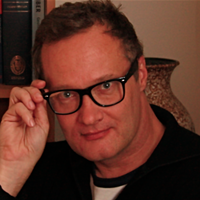We should be relaxed and recharged after the Christmas break, but this year’s holiday period was tainted with terrible news. Airplane accidents and terrorist attacks made for a sombre end of last year, and shocked the world in the first few days of 2015.

Predictably, spy agency bosses and politicians say the Martin Place and Paris shootings justify more surveillance and data retention to prevent future attacks.
Attorney-General George Brandis, who previously found it difficult to not only detail what his data retention bill would cover but also why exactly it was needed, now thinks his government has been vindicated and that stricter security laws are urgently needed.
It is a contradiction in terms: protect the Western way of life and its illusory ideals of freedom of speech and liberty by doing the exact opposite and clamping down all those things.
Such contradictions are not problematic for the powers that be. I don’t like predictions, but for 2015 it seems pretty clear that every person and organisation will be monitored much more than before.
Neither France nor UK are very strong on protecting people’s privacy from official snooping, and there is already extensive surveillance, physical and online, in both countries.
Those measures weren't sufficient to prevent the Charlie Hebdo attack and ensuing murders of hostages during the hunt for the gunmen, so there is no logical argument to introduce the same measures here.
“I don’t want a situation where privacy is so... sacrosanct that terrorists can confidently operate from behind those walls without fear of detection."
- MI5 chief Andrew Parker.
Parker has support for this notion with the British prime minister David Cameron. The BBC quoted Cameron as campaigning the next election on what seems to be a total erosion of privacy for everyone.
Cameron believes there should be no area of communication the government cannot access, and that should set concern for citizens and alarm bells - and that means no encryption.
Brandis and UK politicians are careful not to promise that the additional surveillance will actually work to enhance public safety, but they want it nevertheless.
It may indeed be a valuable tool in investigations and operations, but from an IT security perspective, the thought of handing over the keys to everything in an organisation to a bunch of bureaucrats is every CISO’s worst nightmare.
Similarly, following India's example and blocking anything on the internet that’s even vaguely connected to jihadists will prove to be unsuccessful.
The country has decided to go one step further than surveilliance and force ISPs and providers like Facebook, Google and Microsoft to blacklist sites like GitHub, Vimeo and Daily Motion.
A moral panic measure like online censorship may seem effective at first, but such a sledgehammer approach will invariably hurt innocent people and organisations as well.
The Indian government is already backtracking on forcing providers to block online code repository GitHub (which it pushed for after ISIS posted on the site), following howls of protest from the country’s IT industry.
The attackers the West is fighting are quoted as hating freedom and liberal democracy. They are ruthless enemies, and very clever to boot.
So much so that they’re able to make our elected representatives suppress many of the open means of communication that make us, our businesses and society strong.
Quite a feat, isn’t it?




_(33).jpg&h=140&w=231&c=1&s=0)
_(23).jpg&h=140&w=231&c=1&s=0)






 iTnews Executive Retreat - Security Leaders Edition
iTnews Executive Retreat - Security Leaders Edition
 Huntress + Eftsure Virtual Event -Fighting A New Frontier of Cyber-Fraud: How Leaders Can Work Together
Huntress + Eftsure Virtual Event -Fighting A New Frontier of Cyber-Fraud: How Leaders Can Work Together
 iTnews Cloud Covered Breakfast Summit
iTnews Cloud Covered Breakfast Summit
 Melbourne Cloud & Datacenter Convention 2026
Melbourne Cloud & Datacenter Convention 2026
 The 2026 iAwards
The 2026 iAwards












_(1).jpg&h=140&w=231&c=1&s=0)



